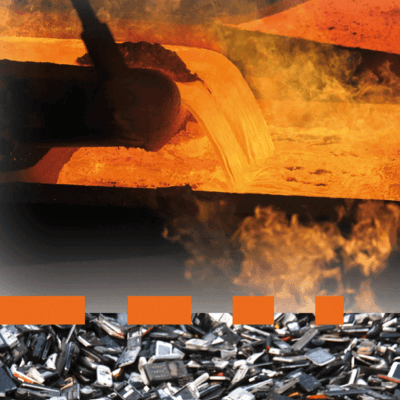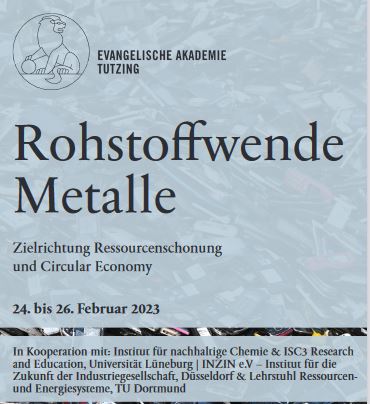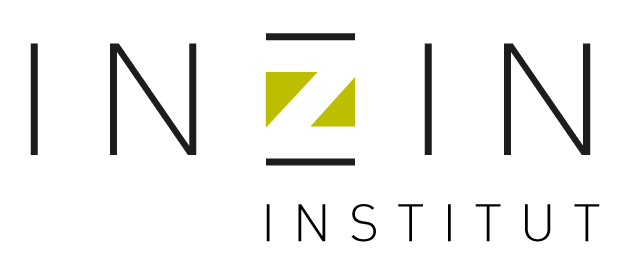conservation of resources

© Aurubis AG

Focus on resource conservation and the circular economy 24–26 February 2023
Problems in global supply chains and concerns about the security of supply for technology metals are putting raw materials policy on the agenda. The announced European Critical Raw Materials Act and the planned national circular economy strategy are important next steps on the path to a sustainable raw materials policy.
In fact, it is about embarking on a fundamental shift in the use of raw materials, particularly metals. The scope of this shift is comparable to that of the energy transition, the mobility transition and the digital transformation. At the same time, it is a prerequisite for the success of these fundamental transformative changes. The emerging consensus is helpful in initiating this building block of the sustainability transformation: The sustainable use of metals – both base metals and technology metals – is a prerequisite for a socio-ecological transformation towards sustainability. A post-fossil era is possible, but a post-metallic era is not. It should be noted that the cost of extracting metals is rising – whether they are primary metals or recycled metals.
The raw materials transition is about
• a reduction in the absolute level of consumption of natural raw materials;
• the expansion of a metal recycling infrastructure and corresponding recycling clusters;
• the further development from a waste management-oriented circular economy to a circular economy;
• the social and ecological dimension of the raw materials transition in order to ensure resource justice and sustainability standards in raw materials supply chains;
• reliable data bases so that the unsustainable use of metals and their dissipative waste are recorded, as are advances towards improved recycling and resource conservation;
• alternative business models based on service and desired functions.
There is much talk of design for recycling, of considering the recyclability of metals from the outset. In fact, the functionalisation of metals must also be taken into account. The development dynamic towards ever greater mixing of metals can no longer be assumed to be expedient and always desirable. On the contrary: the question of functions must also be addressed.
We cordially invite all those interested in metals, those who work with metals and all those who are actively involved in initiating a raw materials transition to come to Tutzing for an exchange of ideas.
You are also cordially invited to attend the open conference section (see separate announcement). Welcome to Tutzing!
CONFERENCE TEAM
Prof. Dr. Martin Faulstich, Chair of Resource and Energy Systems, TU Dortmund University and INZIN e.V. – Institute for the Future of Industrial Society, Düsseldorf
Dr Martin Held, Protestant Academy Tutzing and Transformateure, Tutzing
Prof. Dr Klaus Kümmerer, Institute for Sustainable Chemistry, University of Lüneburg and Research and Education Hub, International Sustainable Chemistry Collaborative Centre (ISC3), Bonn
Further information about the event can be found here.
